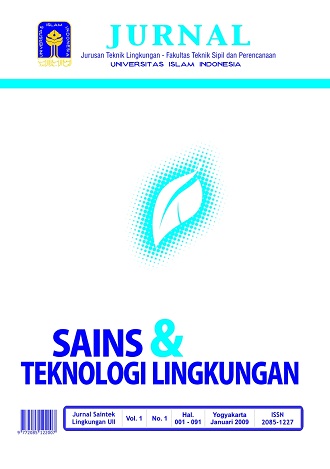Main Article Content
Abstract
Today, about half of the world population lives in urban areas and in the coming 20 years, urbanization is expected to increase steadily, especially in the Developing World. Based on UN data and projections, about 4 out of the 5 billion world urban population will live in developing countries by 2030. Large cities in the Developing World face the problem of unplanned growth, coupled with the financial and operational inability to offer the public services needed to sustain a decent life in urban environments. Water is one of those essential commodities which is often short in supply and/or of low quality. Additionally, flood poses a threat to urban dwellers during rainy season. The water management challenges in tropical urban areas today and in the decades to come can be characterized by (1) fighting physical shortcomings in water resources, (2) coping with contamination of groundwater, rivers, lakes, and reservoirs by domestic, agricultural or industrial waste and waste water, (3) mitigating environmental impacts of water extraction (such as loss of wetlands, subsidence and seawater intrusion) , (4) preventing / mastering flood situations and (5) overcoming administrative and financial strains and operational incapacities. Solutions to the problems of urban water in 20 years time are to be found in supply side and demand side measures. The first group includes (1) optimal use of surface water and groundwater resources, (2) pollution protection, (3) watershed management and (4) more water storage. The second group includes (1) educational training, (2) technological innovation, (3) water conservation and (4) water pricing.
Article Details
License
Authors who publish with this journal agree to the following terms:
- Authors retain copyright and grant the journal right of first publication with the work simultaneously licensed under a Creative Commons Attribution License that allows others to share the work with an acknowledgement of the work's authorship and initial publication in this journal.
- Authors are able to enter into separate, additional contractual arrangements for the non-exclusive distribution of the journal's published version of the work (e.g., post it to an institutional repository or publish it in a book), with an acknowledgement of its initial publication in this journal.
- Authors are permitted and encouraged to post their work online (e.g., in institutional repositories or on their website) prior to and during the submission process, as it can lead to productive exchanges, as well as earlier and greater citation of published work (See The Effect of Open Access).
